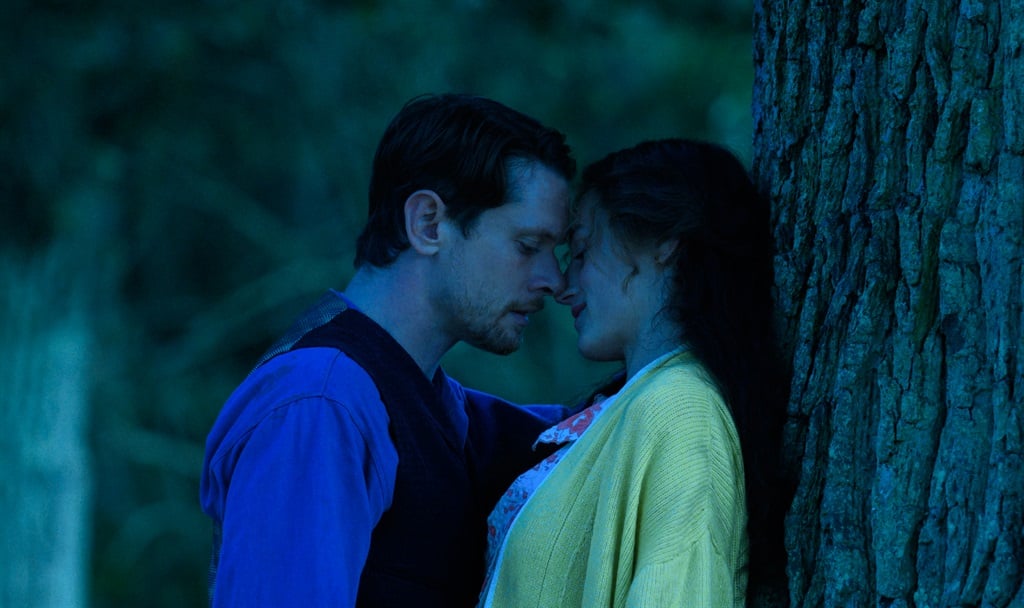
Unhappily married aristocrat Lady Chatterley begins a torrid affair - and falls deeply in love - with the gamekeeper on her husband's country estate.
Please note this review contains themes of an adult nature.
Classic novels aren't all as stuffy as you might think. First published in 1928, Lady Chatterley's Lover was banned worldwide well into the 60s, and many versions were published without its controversial sex scenes and obscene language. Today Western society's sensitivities are no longer as easily offended by sexual content. However, many might argue that sex has become watered down in today's cinematic climate, especially with the microscope placed on sexual misconduct in the film and media industry.
Again, Lady Chatterley's Lover waltzes in with some of the steamiest on-screen love scenes I have seen in a while, living well and truly up to its legacy. Sensual to the core, the chemistry between Emma Corrin (from The Crown fame) and Jack O'Connell could melt steel as they capture the essence of why Lady Chatterley and her gamekeeper's love story stands the test of time.
If you're unfamiliar with the classic, the story begins with the marriage between Constance Reid and Sir Clifford Chatterley. Dreams of their married future together are dashed when Clifford returns from the war, broken and paralysed. Moving to the countryside, Constance becomes trapped as a nurse rather than a wife and ends up finding solace in the company of the solitary gamekeeper Oliver. They connect on a deeper physical level transcending the distance between their social classes.
Having read the novel a few years ago, the characters seemed a little different in the film adaptation, with Constance a bit nicer and more upbeat and Oliver a little less grumpy and distant in their initial interactions. On the other hand, Clifford was exactly like in the book - too wrapped up in his selfishness and class consciousness to extend any empathy to another person, including his own wife. I don't mind some of these changes, though, especially when, in the first sex scene, I immediately guessed a woman was directing before even looking it up, whereas a man wrote the novel. French director Laure de Clermont-Tonnerre swops out the feminine gaze for the embedded male one in this adaptation. While explicit, it's never gratuitous, beautifully sensual yet raw in its power. For a two-hour period piece, the story beats never dawdle, building up the tension at just the right pace and climaxing at the right time. The ending is somewhat changed, leaving an indelible impact, especially if you are a sucker for period romances. I am not in the slightest, and even I was swept up in its charm.
To help the love blossom, you also need firepower chemistry to bring one of the novel's best film adaptations to life, and we have that in abundance and more in Corrin and O'Connell. Both felt comfortable in each other's presence, a comparable feat when you're naked with each other most of the time, and the power dynamics matched the story's themes of class inequality without bashing your head in with it. Subtlety is the key word here, and Corrin clearly perfected that doe-eyed gaze from her season on The Crown as Princess Diana. O'Connell, on the other hand, oozes charm and gruff sex appeal, nailing the aloofness of Oliver. The book version of the gamekeeper differs on a few levels, but I see it more as an evolution of the story and its characters rather than outright changes.
The only really big change is Clifford's nurse Mrs Bolton, who replaces Constance at one point and, in the book, develops a weird maternal relationship with Clifford. Played by Joely Richardson, who once also took on the role of Constance in a BBC version, the movie Bolton is more compassionate with Constance while still doting on Clifford as a son. Oliver's estranged wife also doesn't appear as she does in the book, instead replaced by her current boyfriend harassing Oliver for his veteran pension money. Again, all these changes are for the better of the film's approach to the story.
In the end, Lady Chatterley's Lover retains the spirit of the book but repositions how the story is told as a woman's fantasy rather than a man's. I was surprised by how much I adored this tale of love transcending class, where two souls have each other in their blood, both mentally and physically. It throws off its shackles of being a scandalous affair that endured decades of censorship and instead evolved into one of the greatest love stories ever told.
WATCH THE TRAILER HERE:




 Publications
Publications
 Partners
Partners












